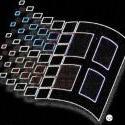Leaderboard
Popular Content
Showing content with the highest reputation on 11/22/2019 in Posts
-
advance notice: - firefox45esr will have a new build tomorrow - nm27/km76 are unlikely to have new builds tomorrow - sp55's update is still pending hoping it can be done on/before 30 Nov4 points
-
Most of the contents of the Older Windows NT-Family OSes and Windows 9x/ME forums are actually made by geek minds for nerds only...4 points
-
Your post illustrates quite nicely my point: one BSOD per year (and none without the patch) is one BSOD too many per year, IMO. And CHKDSK becomes unreliable on top of it? That's dangerous by definition: one cannot rely on one's filesystems if even something so basic as CHKDSK refuses to work. As I said, it's not ready for day-to-day use.2 points
-
That's because the patch is intended for advanced users who are used to work with modified system files and understand the possible stability issues that it may cause.2 points
-
Not really. I stopped working on that after my last attempt failed miserably. There's a post with screenshots here on MSFN somewhere. I spent way too many hours on Chromium. It's a far too big project with many parts that I don't really understand and since I don't fully get what they were trying to do and why some things were there that way, some of my implementations were actually wrong when I rewrote them. If you search for my last attempt here on MSFN you'll find out that I managed to get it running but it wasn't able to load any pages and the UI was broken. If you think that every time they add some commit many other things change we're never gonna get it working. That said, the last thing I want right now is to waste many other hours on this code, yelling at my computer for yet another thing that doesn't work. I can only say that I'm not currently working on it and I haven't even opened the solution explorer for months. Dibya isn't working on it and Samuel isn't working on it either. The other guy we shared the code with got stuck at the new vs old multi-threading implementation 'cause once he re-introduced the old multi-threading several things that are NOT documented broke (I.e they are documented, but they expect data in a completely different way and of course it doesn't say anything about it 'cause nobody expects someone to change a trivial modern Windows API to substitute it with some sort of dirty way to check and allocate workload that was used in the former implementation). We haven't heard from him ever since. The last compiled executable works fine on Windows 7 and above but on XP and Vista it doesn't. If we push our very latest code into it and we compile, then it doesn't work on ANY Windows Platform as it fails to load pages (although it does start a glitchy default Window which immediately crashes). This just enlightens the fact that there's something deeply wrong in our code since we broke modern Windows compatibility, but anyway we don't really want to have different routines inside our code for different Windows platforms. In a nutshell: I'm not working on it, don't expect anything from me. I did my part, the code has always been open source and online, so if you wanna help the guy who took the project over from us, ask Dibya and Peter so they can make you talk with him, if he's still working on it of course (I have no idea what that guy is up to since I haven't heard from him for months and he doesn't reply on Skype anymore). I'm sorry to delude you, but I guess that's it...2 points
-
Notice: These projects have no affiliation with any upstream community code sources or organizations. Please direct all support or related questions to here. "Serpent", "New Moon", "MailNews" are generic debranded names and they are subject to change in the future. Archive directory names and archive filenames will only be changed once generic debranded names are not used in the future. Latest changelog is available here as well: http://rtfreesoft.blogspot.com/search/label/browser for people who can't register here, there is another place you can create post for asking/help besides in github and blog: https://forum.eclipse.cx/viewforum.php?f=33 Serpent/UXP browser (MCP reforked 52ESR as new base), and NM28XP releases: Binaries are moved to here: (I'm lazy to edit all previous posts) https://o.rthost.win/palemoon/?sort=date&order=desc BOC and hyperbola related binaries: Binary list: https://o.rthost.win/boc-uxp/?sort=date&order=desc ------------------------------------- NewMoon 27 build: ------------------------------------- Serpent/moebius browser (deprecated by MCP, forked by me), and also 26.5 as playground : And NewMoon 26.5 and K-Meleon 74 with Goanna 2.2 (newmoon-26.5) for vanilla Win2000 build: ------------------------------------- K-Meleon browser with Goanna/Tycho engine: It has its own sub-forum in K-Meleon official forum! http://kmeleonbrowser.org/forum/list.php?19 Latest build: ------------------------------------- Firefox ESR 45 with TenFourFox fixes for IA32/SSE-only machines: ------------------------------------- K-Meleon Original cross-post is here: ------------------------------------- ArcticFox XP win32 test build: ----previous post----1 point
-
IIRC, the last Java version with an installer that runs on XP was 8u151/8u152. But any Java version prior to the latest (8u231 as noted above) will trigger Mozilla's security warning. To get the latest version installed on XP, see these posts: BTW if you put those commands into a .bat or .cmd file don't forget to double all the % characters in the for command. You may also want to use a capital F vs. a lowercase f.1 point
-
Well Win32 my patch never caused any issues with ATI Radeon and Intel HD graphics even for your surprise hibernation works with my patch with so called buggy ATI Radeon . How it works then ? Let me explain . XP , 2k and 2k3 all handles pae differently . XP : keeps double DMA buffer enabled always when 64bit ramdisk is active 2k : Enables dma buffer when certain kernel calls are called by your driver (on those days high end components only used those API but that not lies today since nt is a major platform now unlike 9x in those days. 2k3 sp2 : has special hal mechanism that detects defective driver and enable DMA buffer when the driver support in separate memory space . My new patch will port fullmechanism from win 2k3 unlike my old patch which ported some to prevent just few drivers which troubled me and my user . I am using my new patch for 4months . It is so far God like stable .. I will analyse new patch by Daniel since it enables pae without pae switch1 point
-
Creative Labs hardware, as well as Intel graphics drivers and some ATI/AMD graphics are known to be incompatible with PAE with RAM > 4 GB on Windows XP. But most application software* (and all 16bit stuff in my experience) runs perfectly fine. Multiprocess applications will certainly benefit. *Video Painter component of Ulead Media Studio Pro 7.3 notwithstanding; a simple rendering operation hogged 2.3 GB before crashing. will try to replicate without PAE. this program dates back to 2003, when most people had 128-512 MB of RAM. I struggle to find myself using more than 2 GB at any given time though. However, I don't use NT 5.1 (XP) for these pursuits. Windows 2000 Professional with Extended Kernel + Core also unlocks up to 64 GB of RAM and runs 90% of everything XP runs. The PAE implementation is stable thanks to its direct lineage with its Server counterparts. And it is not as unobtainable as Server 2003 Enterprise Edition.1 point
-
I don't think anybody really knows for sure. All those PAE patches are still *very* experimental, so there are scanty reports of their use and no serious, intensive, test of them in day-to-day use. In my experience, if one can see 3 GiB or a little more than that, XP SP4 updated to the last POSReady updates will run smoothly in day-to-day use and run OK any Office (from 97 to 2007), graphic processing programs like Irfan View, LView Pro, Pic win Pro, @roytam1's browsers, 360chrome, Origin 7.0, MPC-HC, Malwarebytes Premium 3.5.1 together with the last MSE, and many system diagnostic and optimization utilities, among other software, for months on end, without requiring a single reboot, and even with no pagefile, although I favor using the Gavotte Ramdisk (using RAM above 4 GiB) for a pagefile, TEMP and the temporary internet files from every broswer. My 2¢ only but, then, you sort of asked for them, right? Of course, were I to ever use the PAE patch, I'd go to @daniel_k's and MOV AX, 0xDEAD's one, which I trust hands down.1 point
-
Sorry, by EOS I meant end of sale... which is the "Extended" period that included OEM Facilitated Downgrade Rights (Buy Win 10, get Win 7 installed). I do not remember exactly how long ago it was, I wanted to say 2 years but that seems to be too long.1 point
-
Several months ago I decided to save the Desktop I built for XP. After upgrading most of the components it seemed logical to improve the operating system, if I could. That why I started this thread about PAE patching. bphlpt, I found that magnet link. Thanks for your guidance. I stopped downloading torrents years ago, so my torrent clients are ancient. I just read an article about torrent magnets. Seems like an improvement over the old torrents. I downloaded PicoTorrent because it's simple. I read all the replies to my original post. I'm going to try one of these PAE patches. I've got numerous system backups, so I have to stop worrying about which PAE patch is the safest. Dibya, there are many positive articles on other sites about your PAE patch. People who have tried it like the results. I have several hardware and software cleanup procedures to perform before I apply the PAE patch. I'll return to this thread with the results.1 point
-
This was posted in the past (in the now closed original thread), but the official Mozilla langpack for FxESR 45.9.0 should do: https://ftp.mozilla.org/pub/firefox/releases/45.9.0esr/win32/xpi/de.xpi Install, restart browser, in about:config set general.useragent.locale;de, restart once more...1 point
-
1 point
-
Updated api lists and source code inside. Kexbase.24c.7z1 point
-
@caliber, I say this with sincerity and kindness, but I think it might be best if you just leave this alone and stick with XP as it is for now. I don't think you are quite ready to try to use any of the PAE patches or make any other complicated changes to the OS yet. I'm not trying to insult you in any way, but you probably need to do a lot of reading and experimenting on a smaller scale for a while before you tackle anything of this magnitude. You need to learn how to execute command line programs, etc. When you previously pointed out the use of the Russian patch I thought you were further along, but now it seems you are currently only at the "point and click" level, so if, or when, you get into trouble you will have no way to get yourself out of it. If I have misunderstood your level of expertise I apologize, but that is how you are coming across. It's nothing to be ashamed of, we all started that way, but I think you need to do some reading. @Dibyais young and was fairly recently at your level himself (he knows how I respect how much he has learned and progressed in a relatively short time) so he might be able to give you some pointers. Cheers and Regards1 point
-
(Continuing, hopefully not for long , OT discussion about media playback capabilities of Otter Browser under XP/Vista) Many thanks for that link, which also uncovered the rest of the official Otter Browser Forum for me ; thing is, I only keep Otter here as an oddity item, not investing serious time in educating myself about its peculiarities and overall development ... I did read, though, the whole linked thread and have to say the real money is on the very last post there, by member maxxproff : It's in fact that huge (77.4 MB) DLL alone that gives the "-xp" (QT 5.6.2 based) Otter builds h264 (and VP8) decoding support; so this is a big improvement compared to the stock XP/Vista builds But that support alone will only allow for the reproduction of standalone MP4 files (local files or ones streamed via progressive download, such as 360p & 720p avc1+aac youtube encodes); however, as also pointed out in that post, with this solution there's still no support for MSE, despite setting about:config => QtWebKitBackend => EnableMediaSource : Yes So, MP4 files streamed over MPEG-DASH , like youtube's higher resolution (e.g. 1080p+) encodes (separate video/audio streams), won't be played back (actually, they don't appear as options at all...). This is made clear using the (now archived) YouTube HTML5 test page: Inside the blue-lined rectangle, functions enabled by the standalone libgstlibav.dll file... That fix has been really appreciated though, many thanks indeed! Cheers!1 point
-
''we're still trying to backport a recent version of Chromium and we're getting closer as days passes'' @FranceBB1 point
-
Unfortunately it doesn't work, at least not with all providers. Stumbled into this too many times to even attempt it again. And I don't even have a recent version of the script compiled with the old ANSI AHK. So it's best to self-compile from the sources. As a bonus here's the sources to a RAM/swap/CPU/system load monitoring script that I've been using back on 98SE and XP; this one can be compiled on Unicode AHK v1.1 too (for Win2000+): MemPanel1101_src.7z1 point
-
A few years ago I developed such thing in AutoHotkey. It's not perfect but it did work in an updated 98SE as well as in XP and 7. Now I'm on Linux and dunno how current version works, if at all. Also dunno how to send you an executable, considering how anal all mail providers have become, and the fact that I no longer have an online repository that I could link to. Maybe attaching the source code here would work, but you'd have to install the old AHK version (1.0.48.05) and compile the script yourself or run it as is. There may be problems when the settings file doesn't exist, I never got around to fix that issue. If you need more help you may contact me privately. NetMeterEx1509-15011_src.7z1 point
-
32-bit: http://web.archive.org/web/20181026103325/https://downloadmirror.intel.com/20758/a08/GFX_Win7_32_8.15.10.2761.exe 64-bit: http://web.archive.org/web/20180202165350/https://downloadmirror.intel.com/20758/a08/GFX_Win7_64_8.15.10.2761.exe1 point
-
i have no idea if this is true or not, but i find it concerning.. https://forums.tomshardware.com/threads/windows-7-kb4524752-forcing-upgrade-to-10.3536973/1 point
-
The "best" browser for XP depends on your hardware. For pre-SSE2 processors, I agree with @looking4awayout: If your system is even older (pre-SSE) your best bet is probably @roytam1's no-SSE build of New Moon 27. For newer systems you have more options. The Chinese Chromium backports are OK if you like Chromium and can deal with the Chinese language. If you prefer a Firefox-based browser, I've had pretty good luck with @roytam1's Serpent 55. It supports more add-ons than his Serpent 52 and I almost never have problems with Web sites not displaying correctly.1 point
-
I'll try to explain, but it's going to be a long post. My understanding is that SP3 (plus post-SP3 POSReady '09 updates) added support for AES, not ECC. The AES cipher was an important addition, because all the other supported ciphers are now known to have weaknesses. But there are two parts to TLS encryption: the cipher itself, and the key exchange algorithm. (The combination is called the cipher suite. Actually there's a third part: the hash algorithm used for digital signatures, but I'll ignore that for now.) The cipher is used to encrypt and decrypt the data being transmitted, but the key exchange algorithm is needed so that a randomly-generated cipher key can be shared between the client and server secretly. The traditional key exchange algorithm used in SSL and TLS is based on the RSA public-key cryptography algorithm. But the Snowden revelations showed there was a weakness in RSA: an eavesdropper (whether the NSA or just some hacker group) could record all encrypted traffic with a given server, then, if they were later able to steal or extort the server's private key, they could go back and figure out all the different random keys that were used, and therefore could decrypt all the prerecorded traffic. As a result, sites have been switching to a different key exchange algorithm called "Diffie-Hellman Ephemeral." With this algorithm, even if an eavesdropper steals a server's private key, they can't go back and decrypt any prerecorded encrypted traffic. The best they can do is a man-in-the-middle attack to decrypt future encrypted traffic. The only problem with the DHE algorithm is that it takes a lot of server CPU, unless elliptic-curve cryptography is used. So sites have been switching to "ECDHE" for performance reasons. (Personally, I think most sites should still support RSA as a fall-back for those of us with older software; as long as we're aware of the risk. But that's just me.) AFAIK the latest schannel.dll added support for the AES cipher but didn't add any new ECC key exchange algorithms, so it only has half of what's needed to connect to www.aidanwoods.com. I was hoping the ReactOS schannel.dll would add the other half, as explained above. I really didn't mean to open such a huge can of worms, though! But I'll keep working on it, on my own; maybe I'll eventually come up with something, maybe not. Oh, man; sorry about all those italics! I was just trying to put a bracketed "I" in the quote, and the forum software thought I wanted everything in italics1 point







